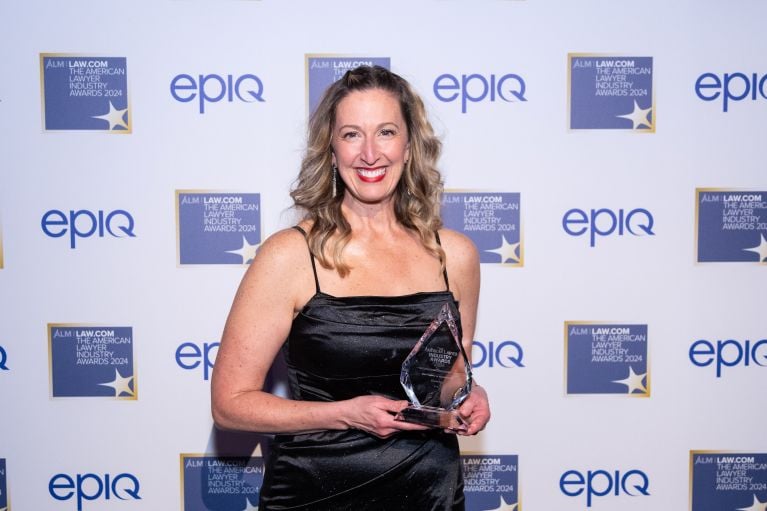 Photo: sutadimage/Shutterstock.com
Photo: sutadimage/Shutterstock.comGeneral Counsel Are Thinking About Economic Downturn but Not Making Radical Changes Yet
As more reports surface that an economic downturn is coming, in-house counsel are going to be paying more attention to how the business is doing.
December 23, 2019 at 07:00 AM
3 minute read
Statistics show that general counsel are worried about some kind of economic downturn in the next year, however, those who work with in-house counsel say day-to-day operations aren't changing just yet.
Michael Sachs, a partner at Major, Lindsey & Africa's in-house group in Chicago, said while he has not noticed a significant increase in hiring, he has also not gotten phone calls from general counsel asking to cancel searches for new in-house attorneys because of a looming economic downturn.
"GCs are spending some time thinking about it because it's been the news," Sachs said. "Smart GCs are thinking about how they're going to handle things while it happens."
As more reports surface that an economic downturn is coming, in-house counsel are going to be paying more attention to how the business is doing.
According to a survey published in November by Altman Weil, 76% of chief legal officers and general counsel in the United States believe a recession is coming and already is impacting their overall budgets.
"The context of the 2019 survey, conducted in September and October 2019, includes a greater measure of economic uncertainty than in recent years, arising from the threat of a recession, unpredictable trade policy and a more volatile geopolitical environment," James Wilber, a principal at Altman Weil, said in the report.
The report shows a decrease in the number of legal departments who have increased their outside legal spend. According to the report, only 40% of legal departments increased their legal budgets in 2019. That number is down from 53% of respondents who said they increased their budgets in 2018. Thirty-eight percent of respondents said they decreased their spending in 2019. Only 37% of departments increased their outside counsel spend in 2019.
"This pullback on law firm spending may reflect the results of doing more work in-house, the use of lower-priced firms or non-firm alternatives, renegotiated rate packages, or some combination of these and other cost-control efforts," Wilber said.
Justin Ergler, director of alternative fee intelligence and analytics at GlaxoSmithKline, said he has not been in any meetings where leaders have asked him about new and cheaper fee arrangements with firms.
Ergler said the recession in 2008 forced legal departments to shrink their budgets and be more careful on how they spend money on outside counsel. However, he said, even in a good economy, general counsel have not been given a green light to spend more money.
"While the economy has recovered since 2008, I don't think that there was an inflection point where companies said we no longer need to worry about legal costs," Ergler said.
He added he thinks companies will be better prepared for the next economic downturn and said law firms are increasingly getting used to the idea of moving beyond the billable hour.
"If law firms are going to continue to be profitable during an economic downturn, they'll need to get used to the idea of non-hourly alternative fees along with investments in technology."
This content has been archived. It is available through our partners, LexisNexis® and Bloomberg Law.
To view this content, please continue to their sites.
Not a Lexis Subscriber?
Subscribe Now
Not a Bloomberg Law Subscriber?
Subscribe Now
NOT FOR REPRINT
© 2024 ALM Global, LLC, All Rights Reserved. Request academic re-use from www.copyright.com. All other uses, submit a request to [email protected]. For more information visit Asset & Logo Licensing.
You Might Like
View All
Digging Deep to Mitigate Risk in Lithium Mine Venture Wins GM Legal Department of the Year Award
5 minute read
Elaine Darr Brings Transformation and Value to DHL's Business

PepsiCo's Legal Team Champions Diversity, Wellness, and Mentorship to Shape a Thriving Corporate Culture
Trending Stories
- 1Texas Shows the Way Forward in Resolving Mass Tort Gridlock
- 2Ninth Circuit Rules on Inherent Authority and FRCP 37(e)
- 3Where CFPB Enforcement Stops Short on Curbing School Lunch Fees, Class Action Complaint Steps Up
- 4Appellate Court's Decision on Public Employee Pension Eligibility Helps the Judiciary
- 5People in the News—Dec. 2, 2024—Marshall Dennehey, Pollock Begg
Who Got The Work
Michael G. Bongiorno, Andrew Scott Dulberg and Elizabeth E. Driscoll from Wilmer Cutler Pickering Hale and Dorr have stepped in to represent Symbotic Inc., an A.I.-enabled technology platform that focuses on increasing supply chain efficiency, and other defendants in a pending shareholder derivative lawsuit. The case, filed Oct. 2 in Massachusetts District Court by the Brown Law Firm on behalf of Stephen Austen, accuses certain officers and directors of misleading investors in regard to Symbotic's potential for margin growth by failing to disclose that the company was not equipped to timely deploy its systems or manage expenses through project delays. The case, assigned to U.S. District Judge Nathaniel M. Gorton, is 1:24-cv-12522, Austen v. Cohen et al.
Who Got The Work
Edmund Polubinski and Marie Killmond of Davis Polk & Wardwell have entered appearances for data platform software development company MongoDB and other defendants in a pending shareholder derivative lawsuit. The action, filed Oct. 7 in New York Southern District Court by the Brown Law Firm, accuses the company's directors and/or officers of falsely expressing confidence in the company’s restructuring of its sales incentive plan and downplaying the severity of decreases in its upfront commitments. The case is 1:24-cv-07594, Roy v. Ittycheria et al.
Who Got The Work
Amy O. Bruchs and Kurt F. Ellison of Michael Best & Friedrich have entered appearances for Epic Systems Corp. in a pending employment discrimination lawsuit. The suit was filed Sept. 7 in Wisconsin Western District Court by Levine Eisberner LLC and Siri & Glimstad on behalf of a project manager who claims that he was wrongfully terminated after applying for a religious exemption to the defendant's COVID-19 vaccine mandate. The case, assigned to U.S. Magistrate Judge Anita Marie Boor, is 3:24-cv-00630, Secker, Nathan v. Epic Systems Corporation.
Who Got The Work
David X. Sullivan, Thomas J. Finn and Gregory A. Hall from McCarter & English have entered appearances for Sunrun Installation Services in a pending civil rights lawsuit. The complaint was filed Sept. 4 in Connecticut District Court by attorney Robert M. Berke on behalf of former employee George Edward Steins, who was arrested and charged with employing an unregistered home improvement salesperson. The complaint alleges that had Sunrun informed the Connecticut Department of Consumer Protection that the plaintiff's employment had ended in 2017 and that he no longer held Sunrun's home improvement contractor license, he would not have been hit with charges, which were dismissed in May 2024. The case, assigned to U.S. District Judge Jeffrey A. Meyer, is 3:24-cv-01423, Steins v. Sunrun, Inc. et al.
Who Got The Work
Greenberg Traurig shareholder Joshua L. Raskin has entered an appearance for boohoo.com UK Ltd. in a pending patent infringement lawsuit. The suit, filed Sept. 3 in Texas Eastern District Court by Rozier Hardt McDonough on behalf of Alto Dynamics, asserts five patents related to an online shopping platform. The case, assigned to U.S. District Judge Rodney Gilstrap, is 2:24-cv-00719, Alto Dynamics, LLC v. boohoo.com UK Limited.
Featured Firms
Law Offices of Gary Martin Hays & Associates, P.C.
(470) 294-1674
Law Offices of Mark E. Salomone
(857) 444-6468
Smith & Hassler
(713) 739-1250







